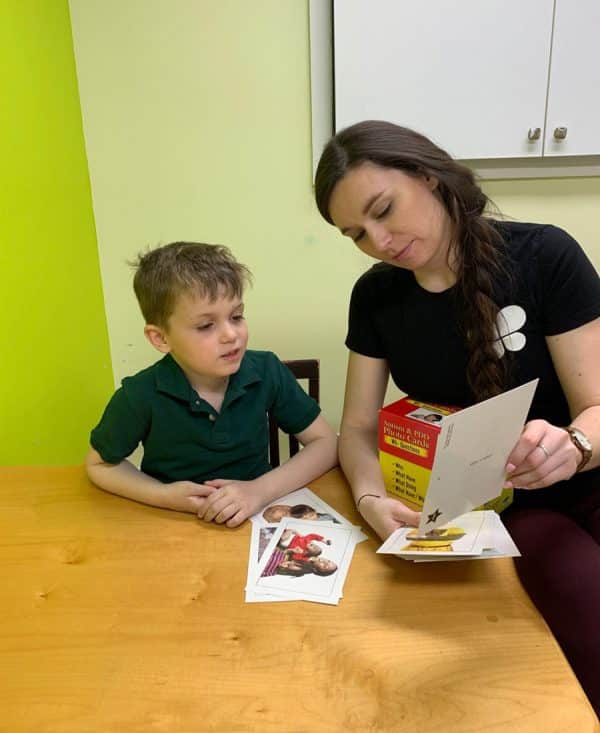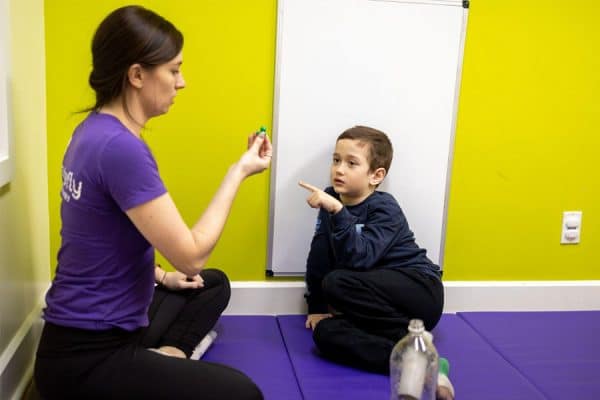Supporting Reading, Writing and Language Success for School‑Age Children
Does your child have difficulty telling you about their day (i.e. events out of order, incorrect tense, unconnected ideas)? Do they overuse words in their vocabulary, or resort to using non-specific words (i.e. this one, that, it)? Does your child have difficulty following instructions or answering questions, with either understanding the instruction or with formulating a response? Does your child confuse letters and sounds, or is unable to recognize previously read words? These challenges are often characteristics of a language delay, language disorder, and/or learning impairment in literacy. Language delays occur when a child’s language abilities are developing at a slower rate than children their age. Children can be delayed in their understanding of language (receptive delay) and/or their use of language (expressive delay). When language deficits persist below the expected level for a child’s age, interfere with their ability to communicate effectively with others, and without a known biomedical condition, an identification of Developmental Language Disorder (DLD) is designated. DLDs can greatly affect learning and may persist across the entire lifetime. The severity and symptoms can vary. Literacy encompasses more than an understanding of letter-sound associations and word recognition. Rather, skilled reading occurs with the combination of decoding skills and language comprehension (i.e., vocabulary, background knowledge of concepts, language structure, and reasoning). Reading is therefore entirely a language process. A learning disability in reading (Dyslexia) is neurobiological in nature, and is characterized by challenges with fluent and accurate word recognition, decoding, and spelling. It arises from deficiencies in phonological awareness, and is separate from cognitive ability.

During the assessment, our Speech-Language Pathologists will gather a thorough case history including details about your child’s specific challenges, an informal language sample, and probes during various play and book sharing activities. Older children may be asked for a writing sample. Depending on your child’s specific needs, a comprehensive language assessment or formal test may be recommended for language and/or literacy concerns.
Why Butterfly?
Our therapists understand that language is essential for children to communicate effectively, access lifelong learning, and interact with the world around them. Our therapists recognize the importance of learning to read to provide children with a firm foundation to then use reading to learn. Treatment will vary depending on the individual needs and age of your child but may include: education about language/literacy disorders, parent training and home programming, an emphasis on the use of narratives, and follow a structured literacy approach that includes explicit, systematic, and sequential instruction. Members of our team are trained in the “Ascend SMARTER Intervention Structured Literacy Approach” as well as use principles from the Orton-Gillingham Approach to ensure that intervention is direct and multisensory (visual, auditory, tactile, kinesthetic).
Contact Us
© Copyright 2024 | Privacy Policy | Terms of Use | Client Cancellation Policy
